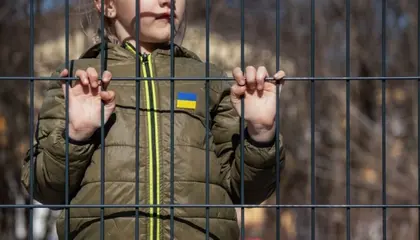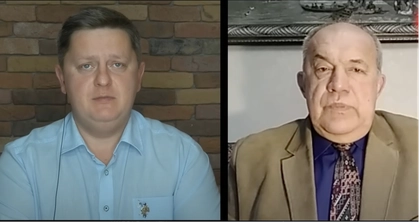Upwards of 20,000 forcibly deported Ukrainian children who remain in Russia have been identified thus far, said Iryna Vereshchuk, Ukraine’s Deputy Prime Minister, on the eve of International Children’s Day.
Shockingly, more than 4,500 of those children – or about 23 percent – have the status of orphans or those who have unclear parental care, and are therefore highly susceptible to Russian manipulation.
JOIN US ON TELEGRAM
Follow our coverage of the war on the @Kyivpost_official.
At the same time, following the deaths last night of two children in Russia's latest aerial attacks, International Childrens Day events in Kyiv have been cancelled by Mayor Vitali Klitschko. They are the latest of some 550 Ukrainian children killed during Russia's full-scale invasion.
Vereshchuk, who has responsibility for the re-integration of de-occupied Ukrainian territories, used a conference platform yesterday to call on Russia to provide Ukraine with the full lists of all deported children and to return them to Ukraine.
She also said the international community needs an effective mechanism “which should be applied to Russia if it refuses to hand over children to us in the near future.”
On March 17, 2023, the International Criminal Court (ICC) issued an arrest warrant for Russian President Vladimir Putin and Maria Lvova-Belova, Russian Presidential Commissioner for Children’s Rights. The pair are accused of the “war crime of unlawful deportation of population (children) and that of unlawful transfer of population (children) from occupied areas of Ukraine to the Russian Federation.”

Exiles From Occupied Bakhmut Find Hope in Christmas Celebrations
An in-depth investigation released in February 2023 by the European Broadcasting Union, an alliance of public service media, found that, since the start of the war, children from occupied areas of Ukraine have been forcibly taken to Russia and placed in families or state institutions, or have yet to return from summer camps or essential medical treatments.
Many have been given Russian passports in naturalization ceremonies. Some have disappeared entirely.
A report to the European Parliament found that, from February 2022 until January 2023, at least 6,000 children from Ukraine aged from 4 months to 17 years have been transferred to 43 facilities in both Russian-occupied territories and in Russia – sometimes over 750 kilometers from Ukraine’s border.
That report also said that “officials in Russia’s Federal Government create and promote camp and adoption programs; local Russia-aligned officials collaborate and facilitate programs; and Russia’s regional officials participate in patronage and coordinate children’s camps” which conduct “re-education to make children more pro-Russian in their personal and political views.”
In addition to Ukrainian children who have been forcibly deported, the full-scale invasion has had a profound impact on children and young people in Ukraine.
Some 550 children have been killed and more than 1,000 injured, according to UNICEF, including the two killed by a Russian missile attack on Kyiv last night.
Catherine Russell, who leads UNICEF, has said the real figure is “likely far higher'” than the numbers verified by her organization.
“'Behind every number is a family torn apart and changed forever. It’s heart-wrenching,”' she said.
More than 50 percent of Ukrainian children have been displaced from their homes at some point during the full-scale invasion.
Some 60 percent of parents say that their children have not had regular and continuous education during the last year. As of January 2023, about 22 percent of Ukraine’s schools had been damaged by war and 420 schools had been completely destroyed.
Approximately 60 percent of parents are also concerned about mental health impacts on their children such as insomnia, anxiety, concentration issues, and problems with communication.
During her appearance yesterday, Vereshchuk also said that the Ukrainian government is working on the practicalities of integrating children returning to Ukraine – especially those with the status of orphans or lacking parental care – and their adaptation.
“Our ‘status children’ have the right to be adopted and have the right to be transferred to foster families. The process of return is a huge task before us. Because it is not only a matter of getting the children back – they have to be adapted so they can live on their native land again,” the Deputy Prime Minister noted.
You can also highlight the text and press Ctrl + Enter






